WHEN it comes to funding the car leasing market, brokers have typically seen the same big names rule the roost for many years.
The car financing arms of major banks such as Bank of Ireland, BNP Paribas, Lloyds, Santander and SocGen are familiar to most, but their dominance in the market may soon be challenged.
As the broader car finance industry faces greater regulatory changes and new technological innovations, automotive financing is also transforming, altering what the funding panels of the future may look like.
Credit Kudos, one of the newer credit scoring firms on the block, believes changes in funding will be driven by technological developments such as open banking which could lead to a substantial shift in consumer expectations and behaviour.
Freddy Kelly, chief executive officer of Credit Kudos said: “There is a huge amount of scope for a host of new entrants to reshape the market.
Appointed Representative Opportunities with Wessex Fleet
Have you thought about growing your broker business? Are you looking for opportunities for growth? Then why not consider joining Wessex Fleet as an Appointed Representative?
Keeping you on the move with leasing solutions tailored to your needs
Leasys is the proud Contract Hire partner of the Stellantis brands, offering mobility solutions from medium and long-term rentals to management systems for company fleets.We work with Brokers to support all their customers requirements.
Accelerate your business with QV Systems & Leaselink
Unlock unparalleled efficiency in vehicle procurement with QV Systems’ Accelerate, now seamlessly integrated with Ebbon Automotive’s Leaselink. Tailored for brokers and funders, this integration streamlines the entire process from quote to delivery, empowering you to effortlessly source and order vehicles for your clients.
“It’s not just about emerging technology knocking down barriers to access and customer friction, but also changing consumer behaviours.
“We’re seeing a real shift in the demand for cars and car use, with both savvy start-ups and the wider sharing economy offering viable alternatives to people who don’t wish to buy, or lease, a shiny new car.”
Disrupting the market
One entrant disrupting the used car finance market, according to Kelly, is Carfinance247. Launched in 2006, the online firm has changed the point at which finance is obtained by organising the funding prior to finding the vehicle.
By doing this, the company says it ensures the consumer is in a better position to make an informed decision and secure a favourable deal.
Coupled with its focus on digital and real time lending solutions, this approach seems to be working as the company recently announced a 12% jump in revenues year-on-year, with more than £35m of loans completed every month.
Peer-to-peer (P2P) car finance is also starting to change the game. Although still a young market, P2P, which allows investors to lend their money directly to borrowers, is growing rapidly, with the likes of RateSetter and Zopa now offering car finance products.
Targeting dealerships
Operating in the vehicle finance market via dealerships, dealer groups and brokers, RateSetter is also setting itself apart from the traditional lenders by offering a fully digitised funding solution.
Lloyd Collett, RateSetter’s head of motor sales, told Leasing Broker News: “Our modern and flexible approach is a breath of fresh air compared to other finance houses which are grappling with their rigid legacy systems,
“With our versatile approach, we have been able to seamlessly integrate our platform into the market by providing a fully electronic consumer experience.”
Collett said the biggest change to the car finance sector in the coming years will come from technology designed to create an even more customer-centric and transparent environment.
“For example, open banking will enable a more personalised approach to finance, based on in-depth customer-specific data, so customers will receive tailored finance solutions a lot faster.
“We have seen a big shift in the use of technology within the last decade with customers more likely to research cars and finance options on their mobile devices before even visiting a showroom.
This compresses the time that previously would have been spent visiting different dealerships, viewing cars and then going through the application process.”
A response from traditional funders
So, what does this mean for the traditional funders that have been slower to adapt to technological advancements?
Many established funders are starting to embrace new technology, and set up partnerships with agile fintechs, in order to better support customers without adding more in-house risk. Indeed, in October Santander Consumer Finance announced the launch of an end-to-end digital service for dealers, rolling it out across the UK.
The industry-first online platform offers e-sign capability, whereby customers can calculate the finance required, receive immediate approvals and sign documentation at home or in showrooms.
With this heavy investment in technology, Santander has sent a clear message to the market that it’s here to stay and is still willing to compete with the younger entrants.
Kelly said: “We think that the banks will retain a long-term commitment to this market,” They’re still involved and have made big moves in recent years.”
One of these ‘big moves’ was made by Bank of Ireland UK. In late 2017, the bank spent a massive £42.5m to acquire Cambridgeshire-based Marshall Leasing so it could develop its car and asset finance business, Northridge.
With a record £1.1bn in gross new lending last year, Northridge remains a key growth business for Bank of Ireland UK, a spokesperson said.
“The focus for the business will be continuing to improve service and investing in new technology so it can serve its customers brilliantly,” he explained.


















